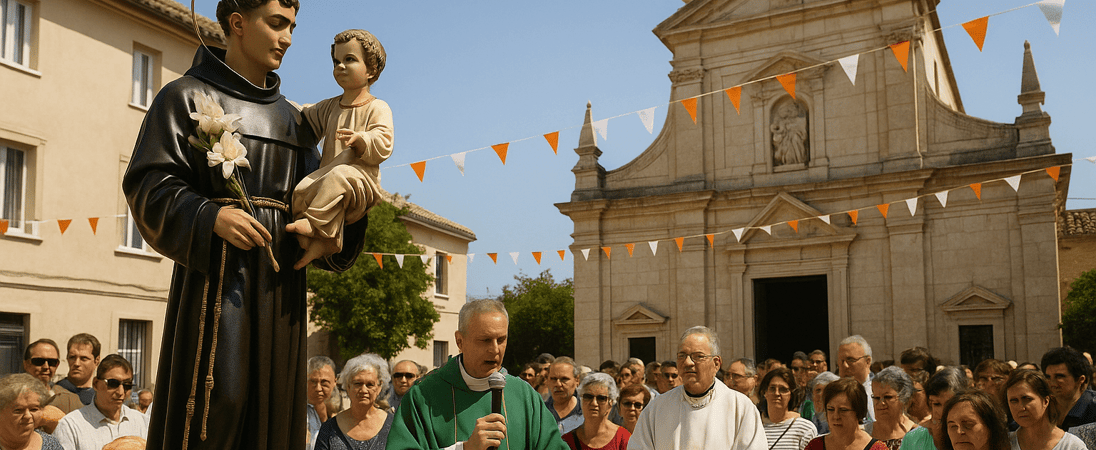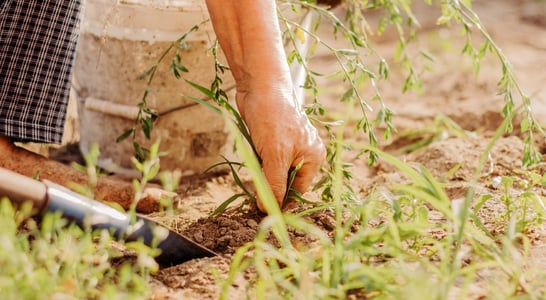
Feast of St. Anthony
The Feast of St. Anthony is a festive day in the Catholic world. It honors a beloved saint known as St. Anthony of Padua. He gained fame as a preacher and teacher.
Catholics call him the “Hammer of Heretics” and a Doctor of the Church for his skillful guidance.
People gather in churches and at outdoor celebrations. They bring bread to receive blessings. They also share food with the needy. This creates a sense of unity and care that fills every street.
Beyond ceremony, the day carries deep meaning. It highlights St. Anthony’s gifts to the poor and lost. He showed kindness through miracles, like bringing back a drowned child.
People still keep his memory alive by offering bread or money to the less fortunate.
Devotees join in simple prayers for help finding lost things and for healing. The event becomes a time of hope and giving. It invites everyone to care for one another and believe in small everyday miracles.
How to Celebrate The Feast of St. Anthony
Here are some simple ways to celebrate the Feast of St. Anthony:
Bake and Share Blessed Loaves
Create small loaves and have them blessed. Distribute them to neighbors or bring them to someone in need. It honors tradition and spreads warmth.
Prayers for Lost Items
Invite friends to pray a brief petition asking St. Anthony’s help with lost things. Use the classic “Tony, Tony, come around” prayer.
Play a “Finder” Game
Host a hide‑and‑seek game or scavenger hunt for small items. Make a quick prayer before each round. This adds fun and meaning.
Donate “St. Anthony Bread”
Give bread or a small donation to a food pantry or family in need. This ritual keeps alive the tradition of giving for answered prayers.
Light Candles in His Honor
Visit the church or set up a candle spot at home. Light a candle while offering a short reflection or prayer. It brings calm and devotion.
Attend or Host a Simple Service
Join a local Mass or small gathering to honor St. Anthony. If unavailable, host a brief prayer circle in your living room.
History of Feast of St. Anthony
Saint Anthony of Padua moved from life to legend soon after his death. He died in 1231 at age 36 while traveling toward Padua.
His friend, Pope Gregory IX, officially declared him a saint a year later, in 1232. Devotion to him grew fast, with many people visiting his tomb in Padua to praise him and report miracles.
Early followers began celebrating in his honor shortly after. The first formal celebrations are thought to have begun in the mid‑13th century, especially around Padua and Lisbon.
Lisbon built a chapel on his birthplace soon after his canonization, and it later became a church. The festival spread through Franciscan communities in Italy and Portugal. These early feasts mixed prayer, offerings, and local gatherings.
Over time, public street celebrations grew popular. People in Italy and Portugal honored him with blessed bread to share and local Masses.
By the 1600s, Lisbon held large neighborhood parties and decorated streets around its church. Similar traditions followed in Brazil and other Portuguese‑speaking areas.
In other places, the celebration took new forms. For example, Boston’s North End community, founded by Italian immigrants, began its feast in 1919.
Today, it includes street fairs, parades, live music, and food stands ― all to honor St. Anthony in a vibrant communal way.
Also on ...
View all holidaysWorld Gin Day
Distilled from Juniper berries, gin is one of the sweetest, most subtly flavored liquors. Have a martini, gin and tonic, negroni, or any other gin cocktail.
National Weed Your Garden Day
Dig in the dirt, feel the sun on your skin, and uproot those pesky weeds! You'll uncover a beautiful canvas for your green thumb to paint on. Happy gardening!
World Softball Day
Get together a group of friends and get outside to play a fun, competitive, game of softball. Good exercise, good times with friends—what more could you want?
National Rosé Day
It’s lighter than a rich red, but still maintains ample flavor of the skin of grape. Gather some friends and family and have a rosé wine tasting party.



